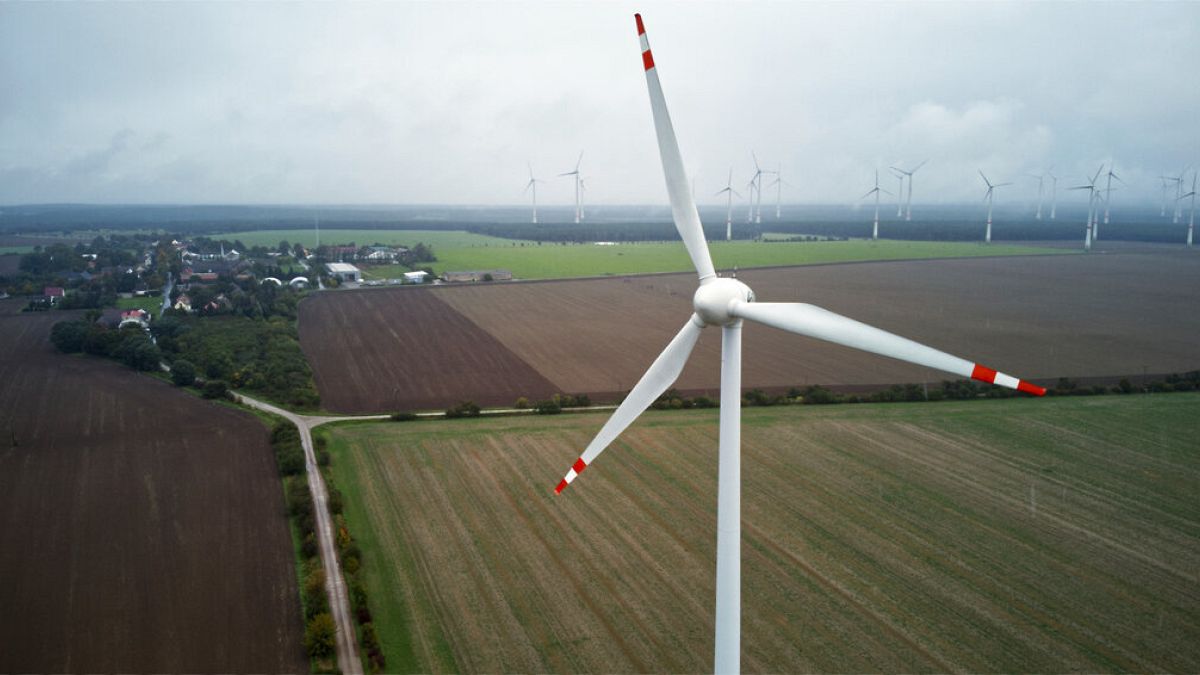Locals in the German town of Feldheim have worked together combining green and renewable energies to make their town entirely energy auto sufficient.
Energy prices are a huge concern for Europeans across the continent. Many are trying to save money by turning down the heat and shutting off lights this winter.
However, this is not the case for the 130 inhabitants of Feldheim.
Located about an hour and a half south of Berlin, this modest but well-kept village has been energy self-sufficient for more than a decade.
A bold experiment launched in the mid-1990s saw Feldheim erect a handful of wind turbines to provide electricity to the village.
Then it built a local grid, solar panels, battery storage and more turbines.
A biogas plant put up to keep piglets warm was expanded, providing extra income to the farmers' cooperative, which pumps hot water through a village-wide central heating system.
A hydrogen production facility is also under construction.
Now, 55 wind turbines can be seen but not heard on the sloping farmlands around Feldheim and residents enjoy some of the cheapest electricity and natural gas rates in Germany.
Feldheim's hands-on approach to producing its own eco-friendly energy draws thousands of visitors from around the world each year and contrasts with the way Germany as a whole still relies on fossil fuel imports for much of its needs.
Letting locals participate in and benefit from the project was key to Feldheim's success, said Michael Knape, mayor of Treuenbrietzen, the municipality to which Feldheim belongs.
While wind parks elsewhere in Germany often face opposition, including some economically depressed neighbouring villages, Feldheim's close-knit community approved so many turbines that it actually exports about 250 times as much electricity as it consumes.
The village's grassroots approach to generating clean energy contrasts starkly with the prevailing practice in Germany, where large energy companies tend to build and control vast power projects. Small-scale efforts, meanwhile, often face high regulatory hurdles.
